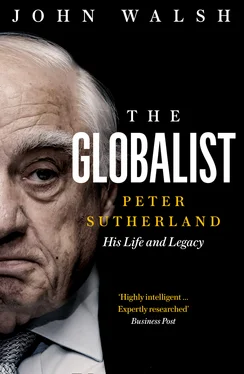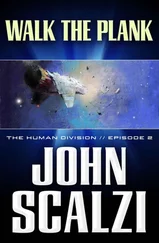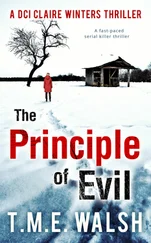1 ...8 9 10 12 13 14 ...19 Fennelly declines to comment on whether he was linked to the post. But he says: ‘Don’t forget there is an unavoidable political element to the role. Peter was a good lawyer with good instincts. He wasn’t noted for his academic approach to the law. He wasn’t noted as a writer of learned articles. But the AG is the legal adviser to the government, and is equipped with an office staffed with experts. It wasn’t a surprise at the Bar. He was noted for being active in Fine Gael. Peter had huge political clout and had a huge self-confidence about him.’
According to Mark FitzGerald, his father was conscious of the fact that he had been elected Taoiseach for the first time at the age of fifty-five. And that is why he made a conscious decision to appoint as many young TDs to the cabinet as possible. Alan Dukes, Michael Noonan and John Bruton, who were all in their thirties, were given cabinet positions. It was in that spirit that he picked Sutherland, says FitzGerald, adding that his father was also conscious about promoting women into senior positions, but that in 1981 there was a dearth of suitable candidates. Eleven female TDs were elected to the 166-person chamber that year, and there was just one female TD in the cabinet: Eileen Desmond, the Labour Party Minister for Health.
‘Was Peter then natural choice as attorney general? Well, I think he was young to be attorney general and I don’t think it was necessarily an absolute given, but I think that the work Peter did with my father was very important. They quickly got themselves on a wavelength. My father was full of policy ideas and Peter was a pragmatist who could see how they could be executed, and the fact that they did that work on the manifesto showed the depth of his brain,’ says Mark.
It was certainly a bold move on his father’s part. According to Alan Dukes, the role would have been agreed between FitzGerald and Dick Spring, the Tánaiste (deputy prime minister) and leader of the Labour Party. ‘There was never any tension in government about Peter’s political background. The protocol with the AG is that he or she attends all cabinet meetings but speaks only when spoken to. It was obvious Peter had things to say outside the strict remit of the AG. He always managed a way of being requested to speak.’
Towards the end of the summer of 1981, when Sutherland was invited to speak to the Irish American Lawyers Association at a meeting in Dublin, he used the opportunity to address the issue of the need for constitutional change. He set out a clear manifesto calling for a thorough review of the constitution and for a programme of social and institutional change that would reflect and implement what was becoming, for some, the uncomfortable reality of plurality. A constitution ‘is made for people of fundamentally differing views’, according to Sutherland.
Pluralism, he said, was the essence of the Republican ideal; the state had an obligation to protect the rights of individuals in the context of diversity of belief and take cognisance of the rights and the sensibilities of non-nationalists in the North. The following is an edited extract of that speech:
Promote pluralism, reconciliation and peace; our constitution had provided stability and coherence to civic society and it had allowed it to flourish and to function.
But a constitution should not give cause for alienation; rather it should assist in the process of reconciliation. For fifty years, the Irish constitution had served us well, it had provided stability and coherence, based on the rule of law, but in the process it had, understandably, acquired an aura of immutability.
But it is vital that we did not permit our reverence for that authority to blind us to some of the inadequacies or shortcomings that were now becoming apparent as society developed and changed. Debate and an openness to change are positive for a democratic republic. The mystique and excessive reverence accorded an iconic text, such as a constitution, can only serve to damage its long-term sustainability and its integrity.
Informed and healthy debate ensures that the constitution remains a living, vital expression of the rights and liberties of each individual in the specific context of the complexity of their relationship with society. Debate protects the citizen just as it preserves the authority of the constitution.[1]
The speech generated significant publicity. In response, the Fine Gael–Labour coalition set up a constitutional review commission and a working group comprised of leading academic experts, together with a number of legal practitioners. The group met on a number of occasions. Having established its terms of reference and a work plan, it produced a series of detailed working papers in which consideration was given to areas of particular complexity such as citizen rights, the right of referral and review and the jurisdictional extent of the courts.
This presaged a decade of social, political and constitutional upheaval.
Public Office
5
THE EIGHTH AMENDMENT TIME BOMB
SUTHERLAND’S CAREER CONSISTED OF TWO PARTS:the public servant and the businessman. His first public sector role, as attorney general in the 1981 Fine Gael–Labour Party coalition, was hardly the most auspicious beginning. The government lasted only 279 days. Against a highly unfavourable economic backdrop, it was a particularly turbulent time in Irish politics. The national debt was climbing to unsustainable levels. The unemployment rate was 15 per cent and rising. The lack of a coherent industrial strategy and short-sighted protectionist policies ensured that levels of economic activity remained anaemic at best. Hunger strikes among Republican prisoners in the Maze prison in Northern Ireland brought worldwide attention to the Troubles, and made the prospect of peace even more remote. IRA murders and loyalist reprisals became a depressing staple of the daily news cycle.
The minority coalition collapsed on 27 January 1982 when it failed to get its budget through the Oireachtas. John Bruton, then Minister for Finance, had attempted to put VAT on children’s shoes; it was a move that alienated the independent TDs propping up the administration. Another election in March returned Fianna Fáil to power.
Then, in the summer of 1982, a series of shocking and random murders convulsed the country when Malcolm MacArthur killed a nurse, Bridie Gargan, in Phoenix Park and a few days later took the life of Thomas Dunne, a farmer from County Offaly. MacArthur went on the run. In an effort to evade capture, he went to the house of an old acquaintance, Patrick Connolly, then attorney general. The two men attended a match in Croke Park, the headquarters of the Gaelic Athletic Association (GAA), and discussed the murder with Garda commissioner Paddy McLoughlin.
MacArthur was arrested at Connolly’s Dalkey home in August 1982. The attorney general immediately resigned and a very colourful description of events was given by the then Taoiseach Charlie Haughey. The episode seeped into popular culture through the acronym GUBU – grotesque, unbelievable, bizarre, unprecedented. (It was Sutherland’s former master, Harry Hill, who successfully prosecuted MacArthur for Gargan’s murder.) Later that year, the Fianna Fáil government itself fell over proposed budget cuts needed to stabilise the country’s fiscal position. An election was held in November 1982, and as a result Fine Gael and Labour formed another government.
Sutherland now began his second and much more eventful stint as attorney general alongside Michael Noonan, the newly installed justice minister. The two men would develop a close working relationship and a lifelong friendship; their earliest encounter, however, was the phone-tapping scandal. According to newspaper reports in December 1982, earlier that year the Fianna Fáil administration had ordered that the phones of two prominent political journalists – Geraldine Kennedy from the Irish Press and Bruce Arnold from the Irish Independent – should be tapped in an effort to detect the source of cabinet leaks. The phone tapping had been instigated by Sean Doherty, a Fianna Fáil TD for Roscommon and justice minister in 1982. At the time, the state could only sanction the phone tapping of persons suspected of subversive activity. Even though the work of Kennedy and Arnold had greatly upset the government of the day, under no circumstances could it be deemed a threat to the security of the state.
Читать дальше












